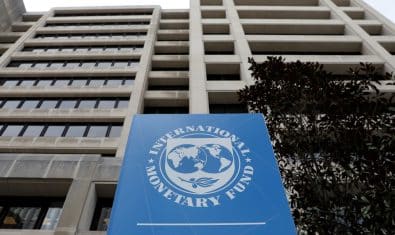In July 2022, the State Bank of Pakistan (SBP) started choking the outflow of dollars of small amounts of less than $100,000 to avoid a further dip in the reserves.
The intention behind this is to resolve the declining foreign exchange reserves and to avert a default-like situation amid a delay in approval and disbursement of the $1.12 billion loan tranche by the International Monetary Fund (IMF).
Four months later, click-bait headlines flooded community groups implying that Google was suspending Play Store in Pakistan. As reported by the fact-check on ProPakistani, the actual change is that users won’t be able to pay for apps using mobile balances. In doing so, the SBP reportedly suspended $34 million in payments to international service providers such as Google under the Direct Carrier Billing (DCB) service by telcos.
While the news was fact-checked, it ushered a wave of panic among the advertising industry that was hoping advertisers would ignorant of the implications of the SBP restrictions for Pakistan’s $2 billion media industry. With an estimated $300 million spent annually on digital media and advertising, according to a Profit report, nearly half goes to companies such as Google and Meta for their platforms.
According to senior sources in the advertising industry, this is a huge problem for Google, which has the policy to wire YouTube creators their cut of ad revenues within 30 days. In contrast, advertising agencies in Pakistan often take more than 30 days to pay Google its owed money. Due to the SBP restrictions, the payments from Pakistan to Google’s Singapore office were cut off altogether.
Sources shared that while theoretically, a reseller of Meta and TikTok should be able to wire money out of the country due to being SBP registered, in practical terms, the required clearances are not coming through despite intense lobbying by representative commercial private banks to their regulatory counterpart. This means Meta reseller representative Dial Zero and Tiktok reseller Jack of Digital earn off the float.
AdTech sector booms
Without payments going to TikTok, Google, and Meta, demand for advertising technology (AdTech) companies is booming. A prominent example is that Jazz is hiring AdTech experts to help it build a solution for the Tamasha app, which is happening precisely a year after parent company Veon acquired OTM, a Russian AdTech company.
The growth of investor interest in the AdTech space has been compounded by the closure of Xaxis, with the departure of its entire team at GroupM, which used to be the most prominent media investment company in Pakistan. This leaves monopolistic AdTech control to Alliancez, which also offers digital out-of-home (DOOH) advertising planning services.
Islamabad-based AdTech start-up ezWiFi is also seeing a growth in demand for its supply-side solution, with the company securing over one thousand locations across the country for free WiFi service. The service allows brick & mortar and HoReCa businesses to share a cut of the ad revenue generated when someone uses a white-labeled free-WiFi service.
In this way, the location vendors attached to ezWiFi are publishers, while the company operates a demand-side platform that allows SMBs to place ads that drive footfall and avail deals.
Private Marketplaces
In the interest of pursuing a transparent media supply chain, advertisers are looking to work with a local advertising network to flow funds to publishers and content creators. Seeking more profound efficiency in digital media spending, marketing executives at digital-first companies keep a close eye on private marketplaces (PMPs) in the AdTech space.
Muhammad Ali Rehman, a founding team member at Hefazat Technologies, an InsurTech start-up said,
“PMPs are ecosystems that allow advertisers to target audiences on various platforms through their targeting parameters at an agreed price point between the agency/advertiser and the publisher.”
“This helps publisher increase their monetization and brands improve efficiency,” he added.
Rehman said that if Habib Bank Limited (HBL) wants to target people looking for a new car, the data population is done with OLX and PakWheels, which enters HBL’s data management platform. HBL can then target these users outside of PakWheels and OLX in all spaces, wherever they’re found on Hamariweb, Cricinfo, Cribuzz, or any other site in the marketplace.
Sundus Shahid Bari, associate director of strategy at Blitz Advertising, commenting on the subject said,
“While normal AdTech allows you to target audiences through an auction, there is a low chance of being able to target as the audience size gets smaller, which increases the chances of losing said auction.”
“This is perhaps the most important reason to have a PMP where the competition is limited & restricted by design, and the chance of winning is higher at an agreed price” she added.
According to an ISBA study published in 2020 on programmatic supply chain transparency, and ANA guide on programmatic transparency published in 2022, the PMPs are one of four types of programmatic advertising deals, with the others being rife with fraud. The studies show that open auctions, preferred deals, and automated guarantees have nontransparent media supply chains.
Ghulam Jilani Kothari, the former head of Xaxis at GroupM and the new head of partnerships at Alliancez said,
“PMPs are the right way to use programmatic, utilizing both your first-party data and buying muscle.”
“Using your overall advertising to increase the effectiveness of advertising expenditure being made daily. With a PMP, you can retarget audiences on premium publishers at a locked price without paying any premium,” he added.

























